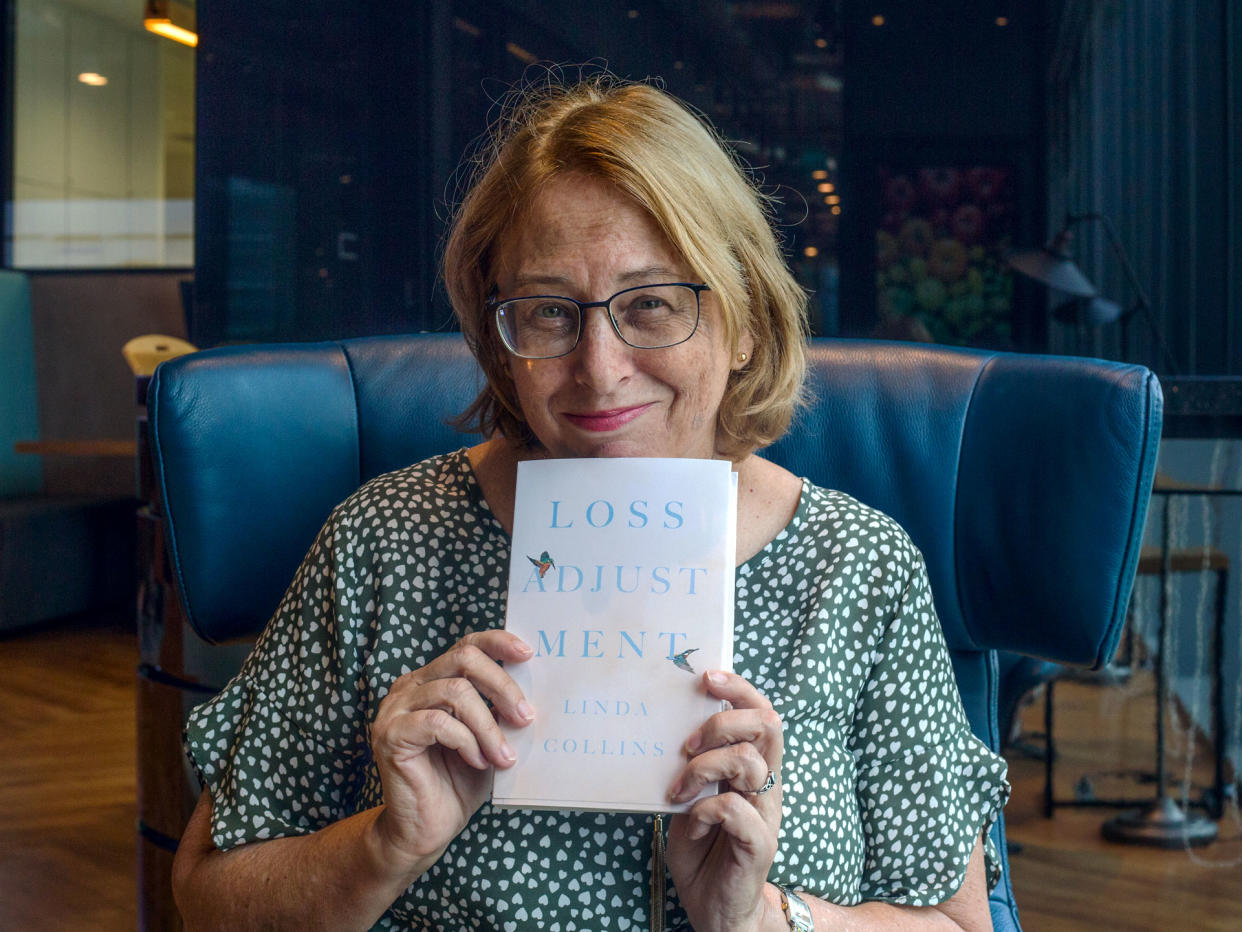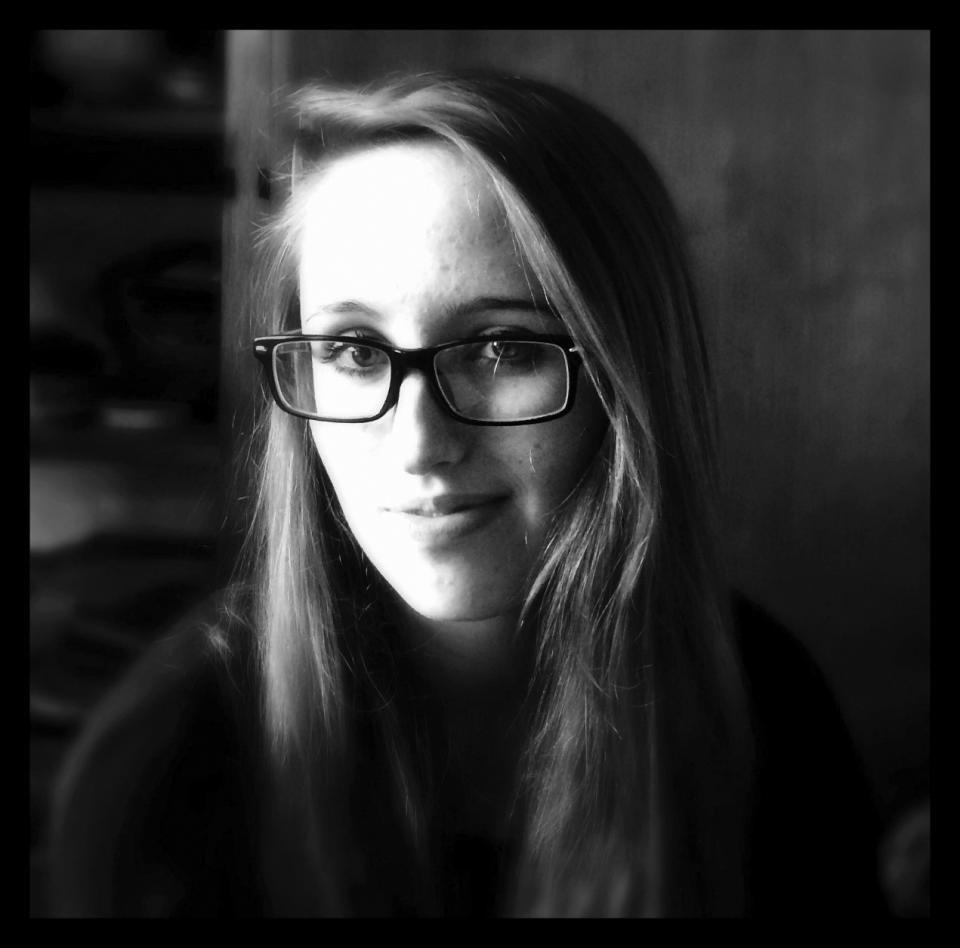Grief, waste and 'Loss Adjustment': The journey of bereaved parent and author Linda Collins

SINGAPORE — It is August 2019, and I am sitting with my old colleague Linda Collins, 60, at the Yahoo News Singapore office. A young woman from publisher Ethos Books is also there to provide emotional support.
A copy of Linda’s new book “Loss Adjustment” lies between us as I pose the cliched, yet inevitable question: has writing about her daughter’s death been cathartic at all?
No, she says. “To write well, you have to be in the moment. So that was extremely harrowing for me,” says the copy editor at The Straits Times.
The New Zealander, who has been in Singapore for almost three decades, adds, “Often, when people ask you that, it’s a way of them dismissing the writing. So while I can see an element of healing...I don’t want to be dismissed as, ‘This is just another mother writing about her loss.’”
On 14 April 2014, Victoria Skye Pringle McLeod, a “wonderful, funny, glorious child”, ascended to the 10th floor of a condominium block and stepped off the edge. She was only 17. “Loss Adjustment” is the story of Linda and her husband Malcolm’s journey as they grapple with the unbearable loss of their only child.
Written as part of a Master of Arts in Creative Writing at the prestigious International Institute of Modern Letters (IIML) at Victoria University, New Zealand, it is partly based on Victoria’s journals that the couple discovered after her death. It is an eloquent, intimate and soul-searching memoir that takes in issues of mental health, social inequality and sexual identity, as well as spiritual struggles.
The title is also an allusion to the role of a loss adjustor, as Victoria’s death occurred amid the stress of insurance claims and rebuilding the family home in Christchurch, which was destroyed by an earthquake in 2011.
Five years on, the pain of her passing remains raw, and a shivering sense of loss runs throughout the book. “How do I even begin to say that I have lost the person who made my life worth living?” she writes.
At the wake, arranged by helpful colleagues and friends, Linda is in shock. “I caress and kiss her corpse and murmur, ‘Why have you left me all alone? Please come back.’”

In the interest of full disclosure: I worked closely with Linda at The Straits Times for several years. I also know Malcolm, 64, the deputy photo editor at the newspaper.
Along with many colleagues, I attended Victoria’s wake. I had never met her before, but I remember the shock that was written all over the faces of those present. I recall being introduced to a friend of Victoria’s and asking, “Did she leave a note?”
She simply shook her head.
While my personal memories of the wake are fragmented and piecemeal, it was worse for Linda. The trauma of Victoria’s death was such that she found herself unable to recall many details of her daughter’s funeral.
And so the process of writing the book turned into an investigation, where she called, mailed, texted and met between 30 and 40 people who were at the wake. “I keep learning new information because your mind is so vulnerable after a death like that,” says Linda. “Even when someone dies, your relationship with them keeps evolving.”
“But you also keep finding out new stuff about yourself. So I've kind of been applying a blowtorch to Linda Collins. What did you lack that you didn't see your daughter was in such internal pain? Where did you fail as a parent?”
‘How could we have been so blind to this?’
Some of the extracts from Victoria’s journals are chilling. “I want to commit suicide so bad,” she declares in one. “I feel really dumb and ashamed because I’m overreacting and I don’t want to tell anyone because it’s obvious they’ll think I’m being stupid and I can work through and deal with my personal problems.”
She goes on to describe graphically how she cut herself, leaving scars on her body.
Was Linda concerned at all about putting such intimate details out there? “When I wrote it, I really didn’t give it a thought, because I felt that it was her telling me what to write.”
But the real turning point was the words of a psychologist whom she had asked to look at Victoria’s journals. “She said, ‘Look how confident (her writing) is. She believed in herself as a writer. (And) she doesn't flinch from analysing herself either. So then I felt more reassured about what I had done.”
And while her husband is “a very private person”, Malcolm was instrumental in the final edits of the book. “He was a superb editor. He said that ultimately, he wanted to honour Victoria, and this book did.”
Nevertheless, there is a sense that the self-recrimination may never end. “Why did Victoria not tell us? She must have wanted to, so many times. We would only have wanted to help her. We could have saved her,” writes Linda.
“How do you live with yourself, with this knowledge that you did see her pain and did not save her?”
Grief, loss and waste

Victoria’s passing was one of 415 reported suicides in the Republic in 2014. Last year, there were 397 such cases, according to the Samaritans of Singapore (SOS). Suicide remains the leading cause of death here for youths aged 10 to 29, SOS said in July.
One key reason for writing the book, says Linda, is the hope that it will help parents spot potential warning signs in their children.
“I hope that it opens up the conversation a lot more on suicide here and elsewhere, and particularly the stresses that teens are under,” she says. “Children need education or advice on addressing it rather than seeking solutions online with strangers.”
With that in mind, Victoria’s journals have also been examined by developmental psychologist Jesse Bering for his book “A Very Human Ending: How Suicide Haunts Our Species”, which has been written about in publications such as The New Yorker and The Guardian.
The road to healing has been a long one for Linda, aided by support groups, kind friends and colleagues, prayer and a return to Catholicism after decades. She muses, “Gratitude is a key part of being able to recover. It actually rewires you neurologically...rather than see(ing) negative thoughts flying around, (you think) ‘I had this wonderful person for 17 years.”
But grief, as she writes, can’t be cured, though it can be diverted for a while. “It is not an illness,” writes Linda.
“Grief is an extension of love, and if you loved your child, you can’t stop loving them and therefore you can’t stop grieving.”
If you have thoughts of suicide or are feeling distressed, you can call the Samaritans of Singapore 24-hour hotline at 1800 221 4444. You can also email pat@sos.org.sg.
Loss Adjustment ($22.47 after GST) is now available for pre-order. The book officially launches at The Moon on Saturday, 28 September.
Related stories:
Suicide numbers rose 10% in 2018, still leading cause of death for youths: SOS
Meaningful calling: SOS volunteers help people in distress to cherish life
COMMENT: Mental health must be a national priority in Singapore



